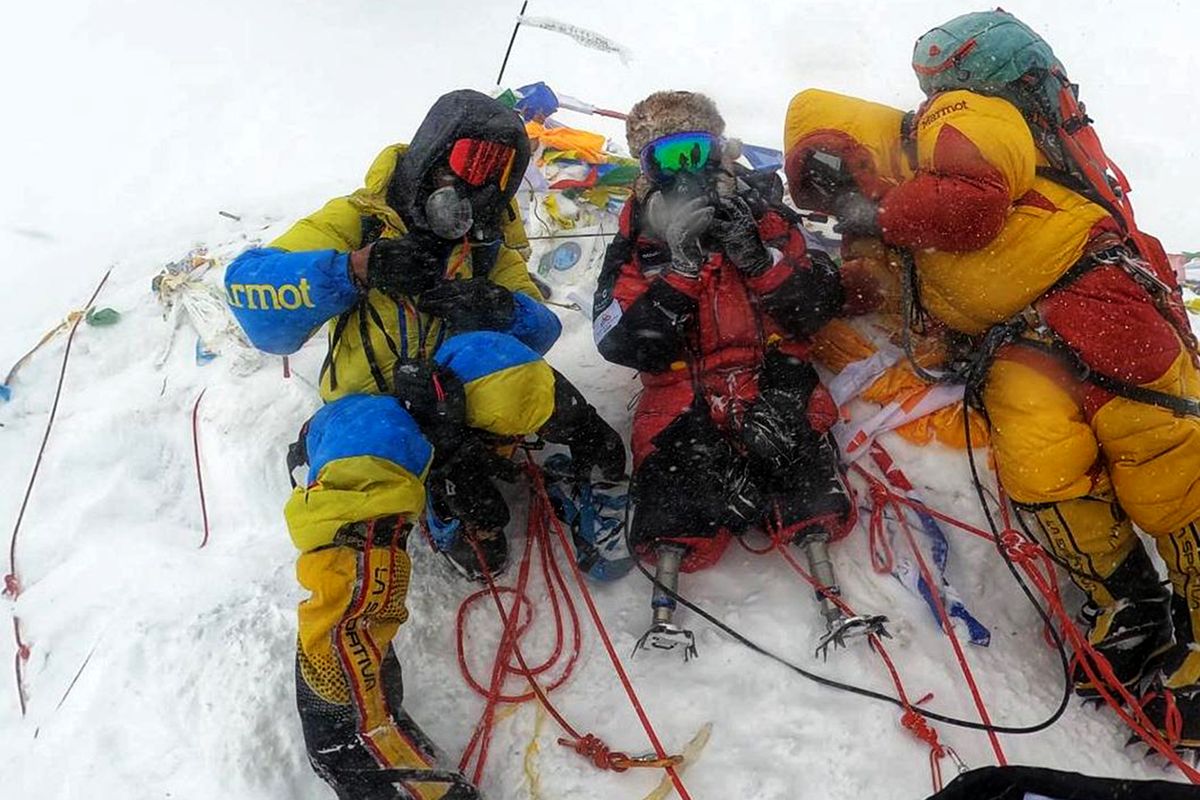A bomb in Afghanistan left him without legs. He just summited Everest.

Hari Budha Magar was born in the foothills of the Himalayas. Growing up in Nepal, surrounded by the mountains and seeing Mount Everest constantly in textbooks and local media, he thought about climbing it someday.
But school kept him busy, and then at 19, he left his country to join a Gurkha unit in the British army. He saw and skied through mountain ranges around the world on his missions and travels, but he was still “thinking about Everest all the time,” he said in an interview.
Those bucket-list plans to climb the world’s tallest peak were complicated by an explosion in Afghanistan in 2010 that left Budha Magar with above-the-knee amputations on both of his legs. But after years of preparation – and delays due to the coronavirus pandemic and a rule that sought to keep people with certain physical disabilities off the mountain – Budha Magar made history on Friday by becoming the first above-the-knee double amputee to summit the 29,000-foot peak.
“Sometimes it doesn’t feel real, the things I describe,” Budha Magar, 43, said as he recounted the excursion in a video call from a tent at an Everest base camp, panning the camera to show the snow-covered rocky terrain blanketed in fog.
Budha Magar was part of a 12-person team led by Krishna Thapa, another Gurkha veteran. The pair served together in the army for three years and were reunited in 2016 as Thapa was planning an Everest expedition.
“What do you think? I’ve got no legs,” Thapa recalled Budha Magar asking him. “Do you think it is possible I could climb Everest?”
“We can only try,” Thapa replied.
Budha Magar began a years-long training regimen as the pair made meticulous plans for the historic attempt. But a roadblock came in 2017, when Nepal’s government banned blind people and double amputees from climbing Everest in an effort to decrease fatalities on the mountain. The rules were criticized as prejudiced against people with disabilities, and Budha Magar and disability advocates lobbied against the ban. Nepal’s Supreme Court overturned the decision in 2018, clearing the way for Budha Magar’s expedition.
After acclimating to the elevation and the snowy, windy environment at base camp, the team intended to start the journey to the summit on April 17 – exactly 13 years after the explosion in Afghanistan that took Budha Magar’s legs – but poor weather delayed them for weeks. This year’s conditions were especially difficult, Thapa said. (At least 10 people have died on the mountain in 2023, according to reports.)
Unpredictable wind – despite access to three separate weather forecasting tools – and conditions such as slushy snow also proved challenging. “The snow was soft,” Budha Magar said, “and I didn’t have knees to lift up.”
Budha Magar said there were times when he wanted to give up, and Thapa said there were a couple of moments when he thought they wouldn’t be able to move forward. But they persisted.
“Hari kept surprising me,” Thapa said.
They summited about 3:10 p.m. on Friday, spending only a few minutes at the peak due to harsh conditions. At the summit, Budha Magar said his tears – happy ones – froze on his cheek. Some on the team had to fetch more oxygen on the descent, and Budha Magar was so exhausted that he slid down on his rear end for part of it. (His snow suit was ripped.)
Budha Magar, who lives in Canterbury, England, said his 10-year-old son was especially worried about him attempting the climb. “I promised myself, ‘I’ll come back for you. I’m not going to go die up there,’ ” he said.
The Nepalese government has struggled to prevent deaths and overcrowding on Everest – traffic jams have become so severe that people have died in them – as hundreds of ambitious adventurers have flocked to the mountain.
Many Nepalese believe that people with disabilities were sinners in their past lives, Budha Magar said.
“I wanted to show that disabled people can have a happy, successful and meaningful life,” he said. “Our disability might be our weakness, but we can do many other things.”